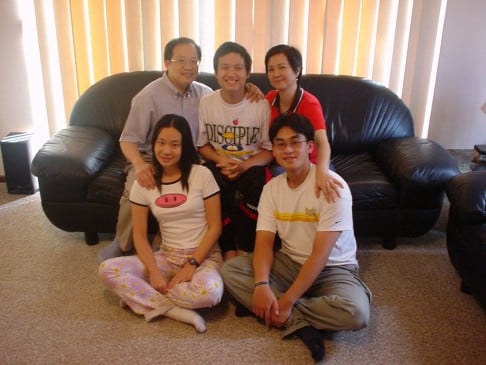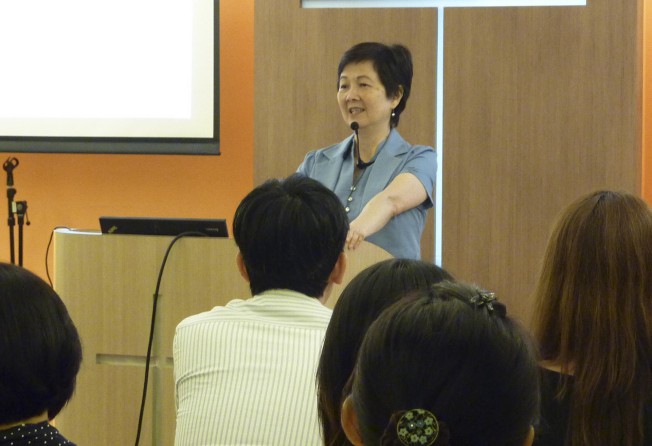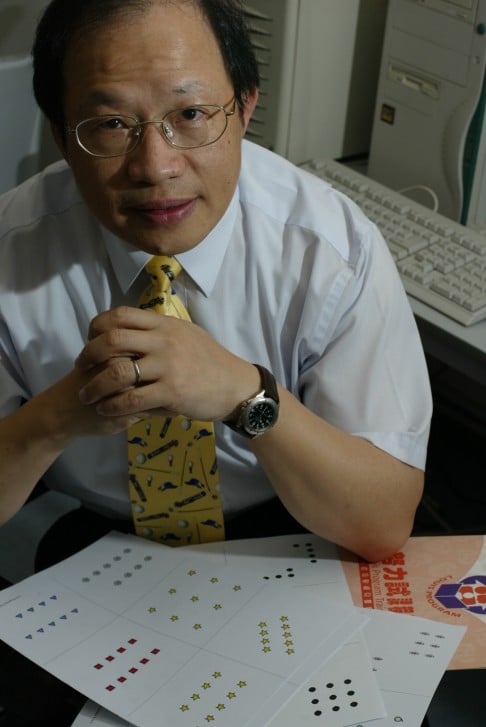
Parents best teachers of special needs kids, programme's Hong Kong founder says
Having taught her autistic son, Louis, to read and write after professionals had failed, Yolanda Wong developed a programme to help other parents and named it after him

Gaining their children admitted to prestigious schools, even kindergartens, is the prime goal of many parents, who commonly say nowadays that they do not want to see their children "fail at the starting line".
One parent, however, took an unusual path. Through stamina and a strong Christian faith, Yolanda Wong, a Hong Kong emigrant to Perth, Australia, devised her own curriculum for teaching special-needs children that families worldwide have embraced since the late 1990s.
Soon after moving to Perth in 1992 with her husband and two children, Wong discovered that her son Louis was autistic. He was sent to a special school, where he was assessed time and again as lacking the ability for verbal communication and learning words.
When Louis was 10, in 1995, she hired an autism expert to design a curriculum for Louis with hopes of developing his literacy. When the expert could not find a solution, she decided to teach Louis herself, beginning with the alphabet, some easy words and how to count. She started to collect various kinds of pictures to create matching cards for him. Some days she spent more than 10 hours preparing teaching materials.

"With his low attention span, it was very difficult to get him to sit still for 10 to 15 minutes. I had to frequently change the puzzles, colour-matching materials on the table to draw his attention. To encourage him, I also often praised him, saying things such as 'you are wonderful' and 'good boy'," she recalls. "I wouldn't regret it even if he still couldn't write his name until the age of 20. At least I know I would have done my best."
After a month's training, Louis could sit still for 30 to 45 minutes. But it took months before he could write his own name after practising hundreds of times.
It seemed like minor progress, but Wong was joyful. It led to the creation of the home-based training programme that has been adopted by Chinese families in Hong Kong, Canada, Australia, Southeast Asia and in China.
As founder of the Louis Program, based in Hong Kong and Perth, Wong and her husband have shared her experience at training workshops for parents who have children with autism or learning difficulties. Forty parents will complete the training in Hong Kong on Wednesday (September 30). A kindergarten in Malaysia has recently incorporated Wong's techniques - simple, repetitive exercises and games developed over years of practice and revisions.
Besides one-on-one coaching, the Louis Program emphasises the importance of parental involvement in nurturing their children. It advocates cooperation with schools which, of course, have their own role to play. In Hong Kong, however, one-on-one coaching for special-needs students comes at a high cost.

The Louis Program supports stressed-out parents by helping them develop their children's basic skills, such as self-care, and face the challenge of educating their children in a school setting.
The parents' involvement runs against the prevailing trend of heavy reliance on schools, educators or experts. Private tutoring is a booming business, with children as young as four now getting regular English lessons from tutors.
Other courses centre on improving students' skill sets, from exam sitting and thinking to mastering complicated knowledge in a particular subject. Few courses teach parents how to help their children.
There is no substitute for the role played by parents. When asked why her home-based training works, Wong responds: "Who else would be willing to do repeatedly the same exercises with a child every day, time and again? Not the therapists, the teachers or the psychologists, but the parents."
The question is how many are willing to join her.